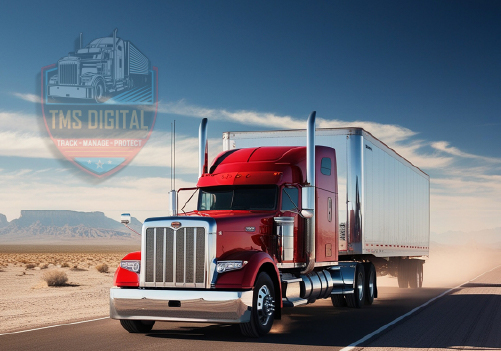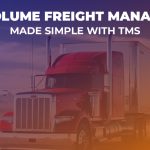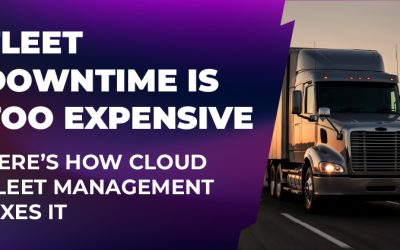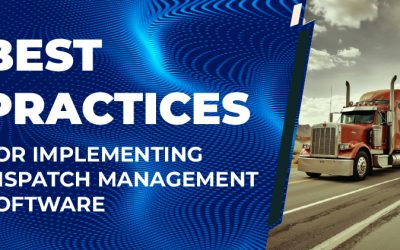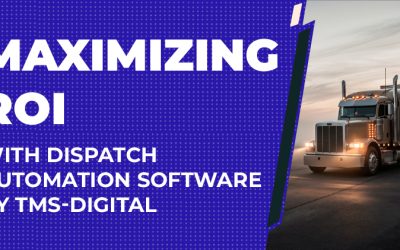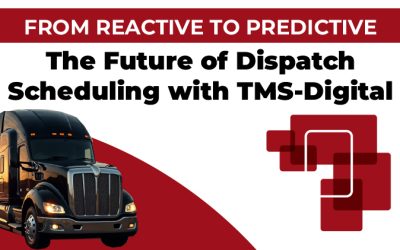
Managing high-volume freight has never been more complex. Companies today regularly ship thousands of orders per week across multiple carriers, modes, and regions. Traditional manual processes — or even spreadsheets — simply can’t keep up with this scale.
That’s why more logistics leaders are turning to Transportation Management Systems (TMS). A modern TMS doesn’t just simplify logistics; it enhances accuracy, drives down costs, provides real-time visibility, and scales operations seamlessly to handle growth.
What Is TMS Software and Why It Matters
A Transportation Management System (TMS) serves as the digital command center for logistics operations. It enables organizations to:
- Optimize routes and carrier selection
- Track shipments in real time
- Automate freight auditing and payments
- Analyze performance with advanced reporting
The industry is catching on quickly. According to Statista, the global TMS market is projected to hit $32 billion by 2030, growing at more than 14% annually. That growth highlights just how critical TMS technology has become for companies managing large and complex freight networks.
Why a TMS Is Essential for High-Volume Freight
-
Centralized Freight Management
Managing multiple carriers manually is both time-consuming and error-prone. A TMS consolidates carrier contracts, rates, and service levels into a single dashboard, so logistics teams can make faster, smarter decisions.
-
Cost Optimization with Analytics
When shipping thousands of loads, even small inefficiencies lead to massive financial waste. With real-time analytics, TMS software highlights cost drivers, eliminates errors, and gives procurement teams data to negotiate better rates.
-
Scalability for Growth
High freight volumes often span road, rail, air, and sea. A cloud-based TMS scales seamlessly, enabling companies to onboard new carriers, expand lanes, and manage global shipments without adding headcount.
-
Real-Time Visibility
Customers demand updates on every order. A TMS integrates directly with carrier systems, delivering real-time tracking, predictive ETAs, and proactive delay alerts. This reduces inbound calls to customer service and boosts trust.
-
Automation of Repetitive Processes
Tasks like generating shipping documents, auditing freight bills, and invoicing take hours when done manually. With a TMS, automation ensures faster processing, fewer errors, and improved compliance with trade regulations.
Key Benefits of TMS for High-Volume Shippers
- Efficiency Gains: Automated workflows reduce delays and free up teams for strategic work.
- Smarter Decision-Making: Analytics and reporting enable data-driven strategies for cost savings and performance.
- Better Customer Service: Proactive tracking and communication improve loyalty.
- Compliance & Risk Management: Documentation and customs processes are streamlined to reduce costly penalties.
- Sustainability: Optimized routing reduces empty miles, fuel consumption, and carbon footprint.
Choosing the Right TMS for High-Volume Freight
When selecting a TMS platform, look for:
- Seamless Integration: With ERP, WMS, telematics, and CRM systems.
- Cloud Flexibility: Scalable, SaaS-based platforms with global access.
- AI & Predictive Analytics: For smarter routing, forecasting, and risk reduction.
- User-Friendly Design: Faster adoption with minimal training.
- Growth Readiness: Ability to handle seasonal spikes and international expansion.
Real-World Industry Use Cases
- Retail: E-commerce giants rely on TMS to handle millions of shipments during peak seasons like Black Friday.
- Manufacturing: Global supply chains use TMS to manage international freight, minimize delays, and reduce costs.
- 3PLs & Brokers: Third-party providers rely on TMS platforms to scale service, enhance transparency, and stay competitive.
The Future of Freight Management with TMS
Emerging technologies are making TMS platforms even more powerful:
- AI & Machine Learning – Optimizing routes and rates instantly.
- Blockchain – Enhancing contract and shipment transparency.
- IoT Devices – Tracking sensitive cargo like food or pharmaceuticals with real-time environmental monitoring.
These advancements mean that TMS software is no longer optional — it’s mission critical for survival in a high-volume, high-stakes logistics world.
Conclusion
Managing high-volume freight without a TMS is no longer sustainable. Rising customer expectations, fluctuating costs, and global complexities demand a smarter solution.
At TMS-Digital, our advanced platforms — including TMS-Dispatch, TMS-Trucker, and IFTA Reporting — give businesses the tools to cut costs, scale operations, improve visibility, and deliver on customer promises.
Ready to simplify high-volume freight management? Book a demo with TMS-Digital today and see how our TMS solutions keep your logistics future-ready.
